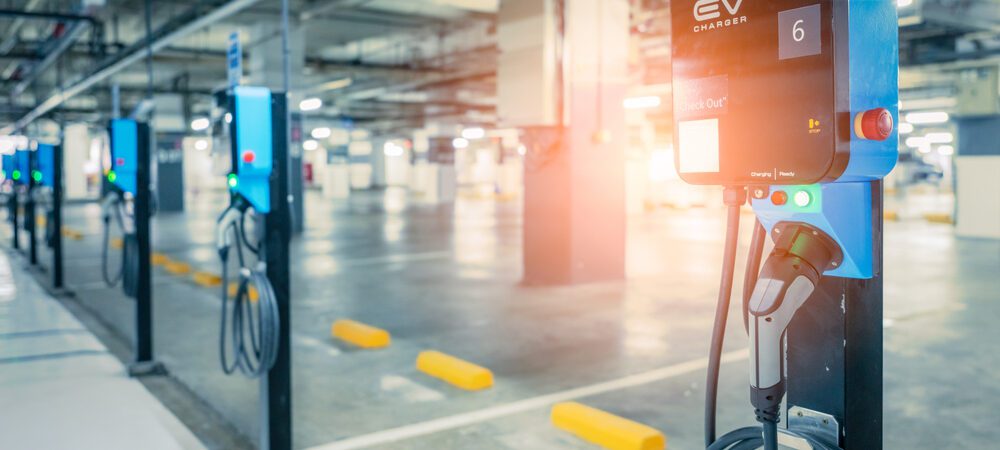A move by China that could curtail exports of graphite may throw a wrench into the supply chains of electric vehicle and battery makers that rely on highly processed versions of the mineral to help power their fleets of plug-in automobiles.
The graphite restrictions followed moves by the U.S. to curb exports of certain semiconductors American companies can sell to China. The U.S. has cited national security concerns for the stiffened export controls, just as China did for its action on graphite.
The trade tit-for-tat shows China is willing to flex its considerable muscle on the EV supply chain as it has outsize influence in the market for key minerals that are vital to battery production.
On Friday, China announced that starting in December it would require export permits for specialized forms of synthetic graphite and natural flake graphite.
China dominates the market for graphite, which is used in the anode of nearly every EV battery. The U.S. sourced roughly a third of its graphite supply from China in 2021. The country is also a major player in other rare earth minerals used in EV production, including lithium.
A Congressional Resource Service report noted last year that the U.S does not have any active graphite mines and has few prospects to develop domestic reserves.
“There’s no way that we can easily decouple ourselves from China,” said Kevin Ketels, an assistant professor of global supply chain management at Wayne State University. “That’s not going to happen.”
Stephanie Valdez Streaty, director of industry insight at Cox Automotive, said the immediate impact of China’s actions are not yet clear, but “it highlights the importance of having a robust and sustainable U.S. supply chain.”
Price is one of the biggest hurdles to EV adoption. China’s actions have the potential to increase the EV prices or put more cost pressures on automakers, she said.
More than 870,000 EVs were sold in the U.S. in the first nine months of the year, and the industry is on pace to surpass 1 million units in a single year for the first time ever in 2023, according to data from Cox Automotive.
For years, EVs have been seen as the future of the auto industry. U.S. companies and the federal government have made it a priority to research new battery chemistry and find alternative sources of raw materials to avoid China and build a domesticsupply chain.
Georgia is a major beneficiary of that push.Since 2018, Georgia has recruited more than $25 billion in EV-related investments and commitments for more than 30,000 jobs, according to Gov. Brian Kemp’s office.
EVs, which produce no tailpipe emissions of greenhouse gases, are central to President Joe Biden’s climate and economic agenda.
At the same time, his administration has passed sweeping legislation encouraging car and battery companies to build their products in the U.S., creating end-to-end domestic supply chains and tens of thousands of jobs. American and foreign brands have responded by announcing new, multi-billion-dollarEV and battery plants in the U.S.
SK Battery America built a massive factory in Jackson County, northeast of Atlanta, supplying Volkswagen and Ford. Anovion, a synthetic graphite maker, has announced a plant in Bainbridge. Copper and mineral recycler Aurubis operates a factory in Augusta, while Ascend Elements recycles lithium-ion batteries in Covington.
In Bryan County, near the coast, Hyundai is building a $7.6 billion EV and battery assembly plant with partner LG Energy Solution. Hyundai is also building a battery plant with an SK subsidiary in Bartow County.
Rivian meanwhile, expects to break ground early next year on its $5 billion factory an hour east of Atlanta. Cox Enterprises, which owns The Atlanta Journal-Constitution, also owns Cox Automotive and holds about a 4% stake in Rivian.
A spokesman for Rivian declined to comment and Hyundai did not respond by press time. In a statement, SK said they do not expect China’s moves to immediately affect graphite supplies, but are “closely monitoring the long-term impact with our partners.”
Pat Wilson, Georgia’s commissioner of economic development, said Kemp tasked his agency to recruit “the jobs of tomorrow” and it’s paid dividends for people across the state while diversifying the U.S supply chain.
But critical and rare earth minerals are key to the technologies that support those jobs, Wilson said, and are controlled by “a few countries, many of which are plagued by unstable and corrupt governments and/or are unfriendly to U.S. interests.”
“When one country controls 90% of processing of one mineral, like China does for graphite, there is an international recognition that we have to diversify supply and invest in technology to alleviate possible pinch points in the system,” he said.
Some of that new technology development is happening here in Georgia.
Matthew McDowell, the co-director of Georgia Tech’s Advanced Battery Center, said one promising alternative is silicon, which is cheaper, more abundant and can store more energy than graphite. Already, it is used in smaller applications, and several major automakers — like GM, Mercedes-Benz and Porsche — are banking on silicon for their next-generation batteries.
Sila Nanotechnologies, which was co-founded by Georgia Tech professor Gleb Yushin, has emerged as a key player, with a $3.3 billion valuation and a deal with Mercedes to produce silicon anodes for its G-Class vehicles.
But the technology needs to mature, and in the meantime, he said the U.S. needs to source its graphite from more reliable trade partners.
“We don’t have a solution right now that can replace it (graphite), even though we’re working on it as fast as we can,” McDowell said.
To read the full article, click here.
To read the full CRS report referenced in the article, click here.

